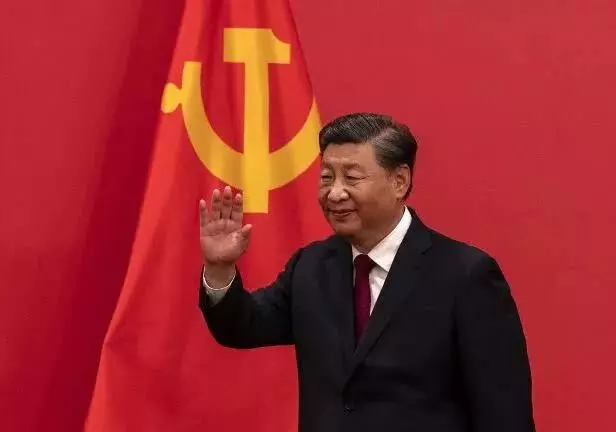Xi says 'no winners' in tariff war as China's exports surge 12.4% and imports fall with Trump’s US tariffs

China's leader Xi Jinping started a week of diplomacy in Southeast Asia with a visit to Vietnam on Monday, signaling China’s commitment to global trade just after US President Donald Trump upended the global economy with his latest tariff moves. Although Trump has paused some tariffs, China remains an outlier, facing 145% tariffs on most of its exports to the United States. This trade pressure comes amid a surge in Chinese exports, which jumped 12.4 per cent in March from a year earlier, as companies rushed to beat the tariff increases. Imports fell 4.3 per cent, according to China’s customs administration.
In the first quarter of the year, Chinese exports rose 5.8 per cent while imports dropped 7 per cent. China’s trade surplus with the United States stood at $27.6 billion in March and $76.6 billion for the quarter. A customs spokesperson acknowledged the “complex and severe external situation” but stressed China’s resilience due to diversified export markets and a vast domestic economy.
Xi’s trip allows China to present itself as a “responsible superpower,” contrasting the self-interested approach of the US under Trump, said Nguyen Khac Giang, a visiting fellow at Singapore's ISEAS–Yusof Ishak Institute. Xi’s visit is also a strategic move to shore up regional alliances and seek alternatives to bypass US-imposed trade barriers. “There are no winners in a trade war, or a tariff war,” Xi wrote in an editorial published in Vietnamese and Chinese state media. “Our two countries should resolutely safeguard the multilateral trading system, stable global industrial and supply chains, and open and cooperative international environment.” Though the visit was likely planned earlier, it has taken on added importance amid escalating trade tensions. Xi will meet with Vietnam’s Communist Party General Secretary To Lam and Prime Minister Pham Minh Chinh. “This trip to Vietnam, Malaysia, and Cambodia is all about how China can really insulate itself against Trump,” said Nguyen. Since assuming office in 2013, Xi has visited Vietnam only twice before. His third visit, just a year after the last in December 2023, sends a “strong political message that Southeast Asia is important to China,” said Huong Le-Thu of the International Crisis Group. Southeast Asian countries are concerned that the paused but looming US tariffs could hurt regional development. Xi’s visit aims to reinforce China’s image as a reliable partner offering leadership and alternatives amid global trade turmoil. Vietnam walks a fine diplomatic line between China and the US. Though it shares a Communist one-party system with China, Vietnam has maintained a strong relationship with the US. In 2023, it received visits from both Joe Biden and Xi Jinping, and upgraded the US to its highest diplomatic status—on par with China and Russia. Vietnam has been a major beneficiary of global supply chain shifts away from China, and trade between the two countries surged 14.6% year-on-year in 2024, according to Chinese state media. However, amid claims that it is being used as a backdoor for Chinese goods, Vietnam has also been hit with 46% tariffs under Trump’s order before the temporary pause. At the same time, Vietnam and China have unresolved tensions over the South China Sea, including confrontations between Vietnamese vessels and China’s coast guard—though these are rarely publicized. After Vietnam, Xi is expected to continue his diplomatic tour in Malaysia and Cambodia, reinforcing China’s regional ties and seeking to navigate a path through the shifting trade dynamics of the Asia-Pacific.



